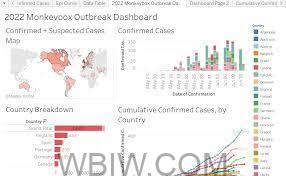
INDIANA – The Indiana Department of Health (IDOH) Wednesday launched a new data dashboard showing the prevalence of monkeypox cases in the state, broken down by age group, gender, ethnicity, race, and public health district.
Since mid-June, Indiana has reported 153 probable or confirmed cases of monkeypox. The dashboard does not include two previously reported pediatric cases because follow-up investigations have determined those to have been false positives.

“Our goal with any dashboard is to provide accurate, up-to-date information on the status of an outbreak or important public health issue to keep Hoosiers informed,” said IDOH Chief Medical Officer Lindsay Weaver, M.D., FACEP. “As the monkeypox situation evolves, we continue to review cases and lab results in consultation with our federal partners to ensure our data accurately reflect the current situation. We are grateful to our laboratory, epidemiology, and data teams for their continued review of cases so that we can keep Hoosiers informed about this outbreak.”
The dashboard, which is posted at monkeypox.health.in.gov, will be updated Monday through Friday by 5 p.m. to reflect cases identified as of 5 p.m. the day before. Due to small case counts in most areas of the state, cases will be broken down by the public health emergency preparedness district at this time to protect patient privacy.

Monkeypox is a rare disease caused by infection with the monkeypox virus, which is part of the same family of viruses as smallpox. Symptoms are similar to smallpox but milder, and monkeypox is rarely fatal. The illness typically begins with fever, headache, chills, muscle aches, and exhaustion about five to 21 days after exposure. Within one to three days (sometimes longer) after the appearance of a fever, the patient develops a rash. The illness typically lasts for two to four weeks. People are considered infectious until all scabs from the rash have fallen off and a fresh layer of skin has formed.
Person-to-person transmission is possible through skin-to-skin contact with body fluids, monkeypox sores, or contaminated items, such as bedding or clothing, or exposure to respiratory droplets during prolonged face-to-face contact.
To learn more about monkeypox, visit https://monkeypox.health.in.gov.
Visit the Indiana Department of Health at www.health.in.gov for important health and safety information or follow us on Twitter at @StateHealthIN and on Facebook at www.facebook.com/StateHealthIN.



